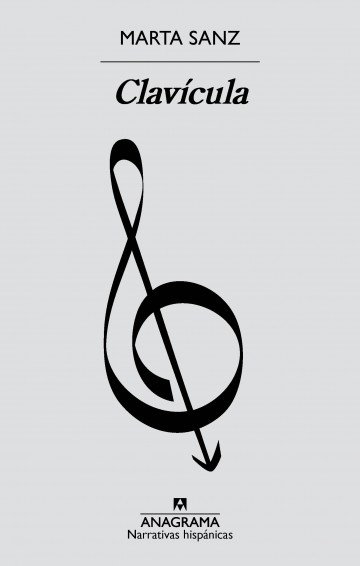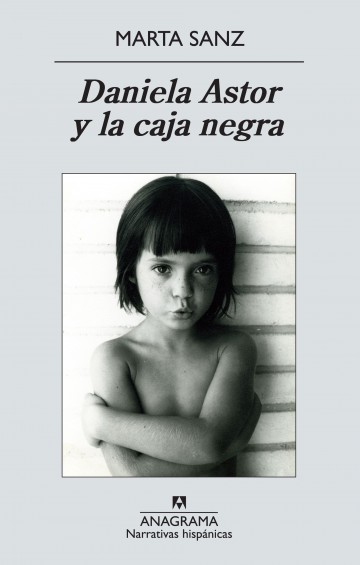| PAGES | 320 |
| SERIES | Narrativas hispánicas |
| PUBLICATION | 01/01/2012 |
El Periódico
Gazzetta di Mantova
Il Corriere della Sera
El Cultural, El Mundo
El Mundo
La Vanguardia
L´Unita
La Opinión de Málaga
Babelia, El País
La Repubblica (2)
La Nuova Sardegna
La Voz de Galicia
Il Manifesto
El Comercio
Diario de Navarra
La Repubblica
Gazzetta di Parma
Cuadernos Hispanoamericanos
El Correo
Il Fatto Quotidiano
ABC
Diario Vasco

SERIES:Narrativas hispánicas
The detective Arturo Zarco leaves for the south. He travels by bus because he doesn’t know how to drive, escaping from a heart broken by the infidelity of his young lover Olmo and from the ironic compassion of his ex-wife Paula. He goes to Marina Frankel’s house, an old lover whom Paula was always jealous of, and with whom Zarco has always maintained an ambiguous relationship based on a vague desire, flirtation and an (almost) loving friendship. This is the foundation of a novel that is by turns bizarre, seductive and sometimes spiky, in which everything that happens, crimes, seductions and loves, some of them paedophilic, may be no more than fantasy, the intimate soliloquy of a narrator called Zarco who tells a story of mirrors, of twins and doubles and of the dead who are really alive and pretend to be those who killed them. This is a story of clues that are diluted into nothing, resembling a detective story written by a camp, tacky Borges.
«Once again Marta Sanz show us in Un buen detective no se casa jamás a tirelessly inventive use of language (and its games) and of satire (from the detective novel, to the romantic novel), with a fascinating narrative that has a lot of contemporary social commentary» (Manuel Rodríguez Rivero, Babelia, El País).
«The intensity of Hitchcock’s Rebeca… Un buen detective proves that Sanz is finding his voice as a writer of Detective Novels, less noir than many, but just as fascinating» (Laura Fernández, El Mundo).
«The detective at the heart of this story is a formidable character who has just left the closet. He is disillusioned, cynical, anti-heroic and surprisingly fragile... The novel, which refuses to follow conventional paths, provokes a growing interest in the reader and the satisfaction of seeing an author who has taken on a literary challenge, and who deserves to be applauded for doing so» (José María Pozuelo Yvancos, Abc).
«This is a complex novel of strange situations that appears to be part of the Detective genre, but ends up being about fairytale characters in a demonstration of pure creativity» (Santiago Aizarna, El Diario Vasco).
«A novel written with a language and a narrative grasp that is worth considering in detail... The role of a good detective is to investigate, to uncover what is hiding beneath the appearance of routine. And Zarco, forty-something, gay and disappointed, finds himself mixed up with a bunch of eccentric characters embroiled in family dramas, fairytales, romances, and, in the end, crimes» (Martín Nogales, Diario de Navarra).
«Arturo Zarco moves from one inferno to the next without pause or reflection, fleeing a familiar pain, to enter a suffocating universe that offers unknown forms of suffering, in which rancorous relationships based on domination thrive. The book takes the form of an authentic detective story of groundbreaking originality» (Iñaki Ezkerra, El Correo Español).
«An excellent cocktail with echoes of a bolero of amorous obsessions, hints of Nabokov’s Lolita and the essential ingredients of fairy stories: Sleeping Beauty, the Step Mother, a chiropodist prince and finally some drops of a game of substitution that is reminiscent of Highsmith’s Ripley. A perfect dry Vodka Martini, stirred not shaken...The best part of the novel is how Marta Sanz converts the story into a fascinating literary scrabble, where language acts like a film camera, a Chabrolesque scalpel that dissects the moral corruption of the bourgeoisie. And, finally, we’re left with an ending where Paula, Zarco’s ex-wife, becomes the next case of this original detective who would havemade Hitchcock, Chandler and Andy Warhol fall in love» (Guillermo Busutil, La Opinión de Málaga).
«An absorbing novel, that drags you inside like a torrent with a continuous bombardment of feelings, thoughts and actions, which oblige the reader to an almost addictive reading. In fact, the book is so hard to put down, that is worth reserving some time for an uninterrupted reading... With an original and stunning style, unusual in genre fiction. A wonderful book» (José María Sánchez Pardo, Revista Prótesis).
| PAGES | 320 |
| SERIES | Narrativas hispánicas |
| PUBLICATION | 01/01/2012 |
El Periódico
Gazzetta di Mantova
Il Corriere della Sera
El Cultural, El Mundo
El Mundo
La Vanguardia
L´Unita
La Opinión de Málaga
Babelia, El País
La Repubblica (2)
La Nuova Sardegna
La Voz de Galicia
Il Manifesto
El Comercio
Diario de Navarra
La Repubblica
Gazzetta di Parma
Cuadernos Hispanoamericanos
El Correo
Il Fatto Quotidiano
ABC
Diario Vasco
TRANSLATION RIGHTS SALES
- Italy (Nutrimenti)


Marta Sanz has a PHD in Spanish Philology. She has published the novels El frío, Lenguas muertas, Los mejores tiempos (Premio Ojo Crítico 2001), Animales domésticos, Susana y los viejos (runner-up for the Nadal Prize in 2006), Lección de anatomía (2008), and in Anagrama, Black, Black, Black, Un buen detective no se casa jamás, Daniela Astor y la caja negra and Farándula (Herralde Novel Prize 2015). She has contributed various short stories to collections and has published El canon de la normalidad, a selection of her own stories. In 2007, she published Metalingüísticos y sentimentales, an anthology of contemporary Spanish poetry and, the same year, she received the Premio Vargas Llosa NH Story Award. She is also the author of the poetry collections Perra mentirosa and Hardcore, both in 2010. She frequently contributes to the Babelia cultural supplement of the El País newspaper.










